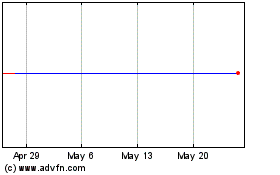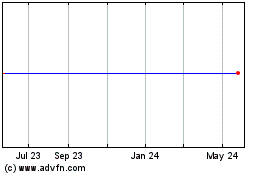Intel-McAfee Deal Underscores Hardware-Software M&A Trend
August 19 2010 - 12:32PM
Dow Jones News
Intel Corp.'s (INTC) $7.7 billion bid to buy computer-security
software maker McAfee Inc. (MFE) underscores a growing trend in
technology acquisitions: deals that bind hardware and software more
closely together.
On Thursday, the Santa Clara, Calif.-based chip giant said it
would pay $48 for each share of McAfee, a 60% premium to
Wednesday's closing price. Intel said the deal was part of efforts
to build software directly into products, something it views as
necessary as powerful mobile devices become increasingly
popular.
"Hardware-enhanced security will lead to breakthroughs in
effectively countering the increasingly sophisticated threats of
today and tomorrow," said Renée James, who manages Intel's Software
and Services Group, in a statement. "This acquisition is consistent
with our software and services strategy to deliver an outstanding
computing experience in fast-growing business areas, especially
around the move to wireless mobility."
The Intel-McAfee transaction comes against a backdrop of similar
deals that merge hardware and software. These types of deals allow
companies to offer complete products and break with the prevailing
tradition of companies specializing in a discrete area. Apple Inc.
(AAPL), maker of the popular iPhone and iPod mobile devices, is one
of the few companies that has concentrated on integrated
hardware-software products.
The deals come against a backdrop of increased technology
M&A. So far this year, tech companies have bought about 1,550
firms, according to Dealogic. By comparison, tech companies bought
just about 1,050 companies in the same period a year earlier.
Many of the most high-profile deals have merged hardware and
software. Earlier this year, Oracle Corp. (ORCL) closed its $5.6
billion takeover of Sun Microsystems, a deal that gave the business
software maker a huge presence in servers, the computers that power
data centers. Similarly, computer giant Hewlett-Packard Co. (HPQ)
purchased struggling Palm Inc. for its well-regarded operating
system software, which it will likely use in its own mobile
products. H-P also said it was buying Fortfiy Software, a software
security firm.
Intel itself has been buying software companies to bolster its
product lineup. It bought Wind River Systems to expand its reach in
mobile products, an increasingly important field as smartphones and
tablet computers become more popular. It also bought Havok, which
makes software facilitating animation in videogames.
Buying McAfee will give Intel more flexibility in building
products that can handle attacks on mobile devices. According to
research firm Gartner Inc., consumers bought 54.3 million
smartphones in the first quarter of 2010, up nearly 50% from the
first quarter of 2009. In March, data tracker IDC forecast
worldwide mobile-security license and maintenance revenue would
more than double, to $2.7 billion by 2014 from $1.3 billion in
2009.
The acquisition should strengthen Intel's mobile strategy.
McAfee, best known for its anti-virus software, recently said it
was marshalling more strength to go after the mobile market. It
recently announced it was acquiring mobile-device security company
tenCube, a move that follows its purchase of Trust Digital, another
mobile-security-software firm.
-By Jeanette Borzo and Andrew Morse
Mcafee (NYSE:MFE)
Historical Stock Chart
From Jun 2024 to Jul 2024

Mcafee (NYSE:MFE)
Historical Stock Chart
From Jul 2023 to Jul 2024
